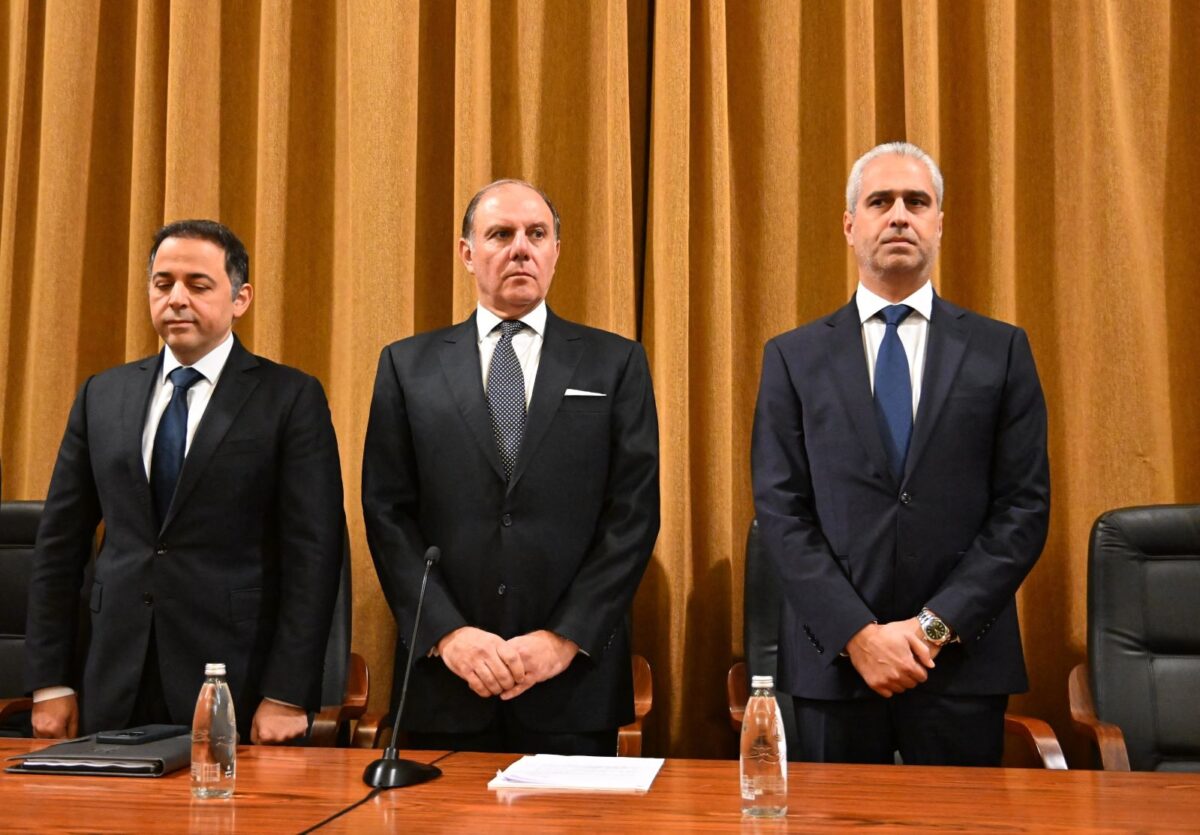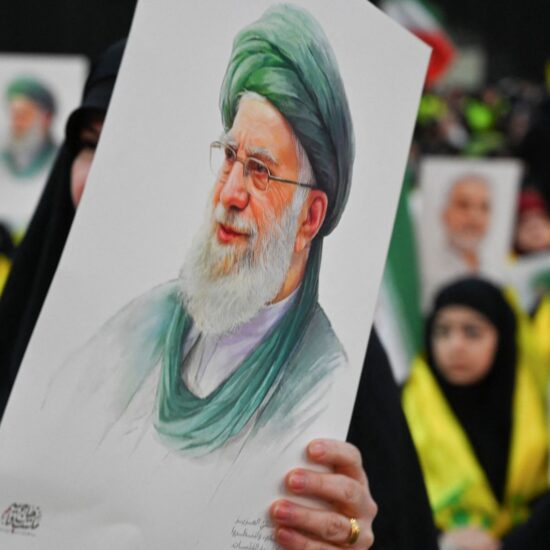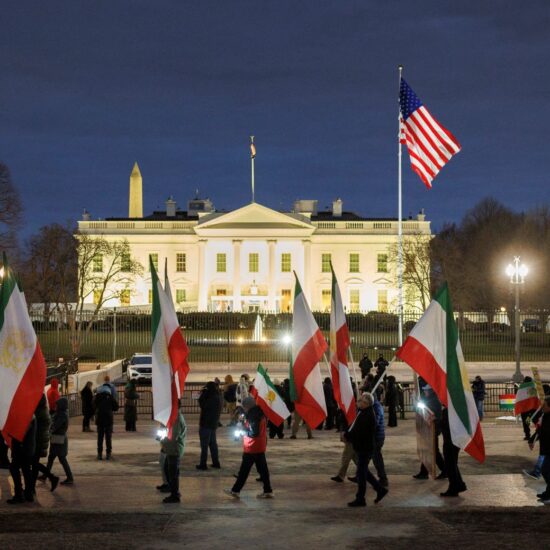
While the law grants different forms of independence, the political environment has historically eroded functional independence. The central bank’s governor, Riad Salameh, who held office for 30 years until 2023, became a symbol of this ambivalence-accused of corruption yet wielding vast autonomous powers. Critics warn that excessive political control risks replicating past failures, undermining reform efforts, and deepening economic instability. Proponents argue that greater supervision is necessary to restore accountability and prevent abuses. This delicate balance between autonomy and oversight will shape Lebanon’s capacity to implement effective banking reforms, restore macroeconomic stability, and regain public trust.
A Legal Study on the Independence of the Bank of Lebanon and the Necessity of Maintaining the Homogeneity of Banking Legislation” has been submitted by governor of the Central Bank of Lebanon ( BDL) Karim Saiid to a meeting of the of the Lebanese Parliament Monetary Committee held on April 7, 2025. This study focuses on “Financial Stability for Lebanon and the Role of the Central Bank in Achieving Financial Stability.” In a nutshell, the study seen by NOWLEBANON aimed at clarifying BDL’s independence according to the 1963 Code of Money and Credit has sparked controversy[-]. While reaffirming the bank’s legal autonomy, the study highlights the political junta’s readiness to redefine the scope of supervision over the governor and the institution. This reflects a broader political struggle over how much autonomy BDL should retain versus the degree of governmental oversight.
Code of Money and UIndependence
Critics argue that BDL’s independence was always a façade. Scholars note that its establishment served local oligarchs and international financiers more than national interests, embedding systemic vulnerabilities. This legacy of political and financial entanglement resurfaced during the 2019 crisis, as BDL’s monetary policies-such as financial engineering schemes-exacerbated fiscal deficits and currency collapse.
It is clear that the political “junta” seeks to redefine supervisory limits over BDL’s governor, balancing technocratic governance with democratic accountability. Proposed banking reforms, like the financial gap law, aim to address systemic losses but require BDL’s cooperation. Simulations suggest reforms fail without genuine independence from political interference.
The independence of Lebanon’s central bank, Banque du Liban (BDL), is a cornerstone of the country’s monetary and financial system, enshrined in law yet deeply contested in political practice. Established by the Code of Money and Credit in 1963 and operational since 1964, BDL is legally defined as a public entity with financial and administrative autonomy, “not subject to the administrative and management rules and controls applicable to the public sector”. This institutional independence is intended to shield the bank from direct political interference, enabling it to pursue monetary stability, regulate the banking sector, and safeguard the national currency with credibility and technical rigor.
Political Independence: What Does It Mean?
Politically, BDL’s independence means that the central bank should operate free from undue influence by Lebanon’s executive or legislative branches, particularly in its core functions such as setting monetary policy, managing foreign reserves, and supervising banks. The law (Article 13 of the Code of Money and Credit) grants BDL autonomy in appointing its governor, vice-governors, and the Central Council, which governs monetary policy. However, these appointments are made by the government, creating a tension between formal independence and political realities.
In Lebanon’s case, while the law grants different forms of independence, the political environment has historically eroded functional independence. The central bank’s governor, Riad Salameh, who held office for 30 years until 2023, became a symbol of this ambivalence-accused of corruption yet wielding vast autonomous powers. Critics warn that excessive political control risks replicating past failures, undermining reform efforts, and deepening economic instability. Proponents argue that greater supervision is necessary to restore accountability and prevent abuses. This delicate balance between autonomy and oversight will shape Lebanon’s capacity to implement effective banking reforms, restore macroeconomic stability, and regain public trust.
Financial or political dependence?
The ongoing debate over the independence of Lebanon’s central bank, Banque du Liban (BDL), centers on how much autonomy the political “junta” is willing to grant the institution and the extent of supervision it can exercise over the governor. A study seen by NOWLEBANON, prepared to clarify the principle of independence inherent to the BDL, emphasizes adherence to the foundational legal framework-the Code of Money and Credit (Decree No. 13513 dated 1/08/1963)-which enshrines the bank’s autonomy within the limits of established laws. However, this study has sparked controversy amid concerns that the political leadership may seek to limit the BDL’s independence, effectively curbing its ability to act decisively and transparently in managing Lebanon’s fragile financial system. This tension reflects broader challenges as the appointment of the new central bank governor has exposed deep divisions between reformist technocrats and entrenched political interests. The government appears prepared to redefine the BDL’s prerogatives, potentially restricting the governor’s powers to increase political oversight and supervision. While some argue this is necessary to prevent past abuses and restore accountability, others warn that excessive political control risks undermining the central bank’s credibility and Lebanon’s ability to regain investor confidence.
The controversy underscores the delicate balance between ensuring the BDL’s operational independence and subjecting it to effective democratic oversight. As Lebanon seeks to implement critical banking reforms demanded by the International Monetary Fund and international partners, clarifying this balance is crucial. The political “junta’s” readiness to grant the BDL independence is thus not absolute but conditioned by the degree of supervision it can exert on the governor’s decisions, reflecting a compromise between technocratic governance and political realities.
Homogeneity of laws
The main topic of this memorandum highlights that “the draft law related to “reforming the situation of banks in Lebanon and their restructuring,” known as the Bank Resolution Law, which was approved by the Council of Ministers on April 12, 2025, directly affects the independence of the Bank of Lebanon and the homogeneity of banking legislation”, it added that “ adopting these drafts due to the potential “legal” risks to the structural integrity (Intégrité structurelle) of the Central Bank, whether through the legislative fragmentation of the regulatory hierarchy of the Central Bank on which it was established, or in terms of their violation (the proposed draft laws) of constitutional, legislative, and administrative principles”.
According to Toufic Chambour, former Head of International Relations at the BDL and lecturer on Central Banking laws, the independence referred to in the study is “financial independence” not “administrative independence” Also, all activities related to “Lebanese banking secrecy,” the protection of personal data of individuals and entities, and the non-interference with the management and operations of banks and the responsibilities of institutions overseeing banking activities mentioned by the BDL governor arguments cannot be interpreted as granting banks “financial independence,” nor does the draft law initially provide for such independence.
This study erroneously warns of the risks of issuing bonds by some marginal governments that benefit from their weak creditworthiness, Chambour told a NOWLEBANON interview. It pointed out (without referring to the period after it or presenting it to the central bank or the Lebanese banking sector’s central council) that it is necessary to have a clear vision (especially regarding financial stability in Lebanon) and identified the reasons for the liquidity and deposit crisis, as well as the materials necessary to reach a consensus on a comprehensive and sustainable reform project, he added. To be noted that this reform project is considered one of the most important projects related to the financial stability of Lebanon. It includes 13 articles, among them the “Financial Stability Law.”
Chambour adds that even if one were to concede, hypothetically, the validity of the alarm raised by the study regarding the connection between the loss of independence of the Central Bank of Lebanon and the risk of seizure of its external gold reserves, this issue would be raised-not because of the banking reform bill itself-but due to the manner in which the custodians of the Central Bank’s management are appointed, which carries the suspicion of subordination to the interests of bankers and politicians.
Likewise, the claim in the study that “independence cannot be understood and applied effectively and beneficially unless it encompasses and extends to all bodies, departments, authorities, and committees organically and functionally linked to the Central Council and the Governor” cannot be accepted. This can be described as a complete integrated unity, where any disruption in the organizational structure or the fundamental tasks of the bodies linked to it threatens the soundness of the Central Bank, which constitutes a violation of the principle of integrity.
The study further added that the reform bill aims to dismantle the entire banking regulation framework under the pretext of enhancing financial stability, Chambour said. It marginalizes the role of the Central Council and the Governor, expands the powers of the Higher Banking Authority to grant it exceptional and discretionary powers, including sole authority to liquidate banks he added . Further, it also grants full authority over matters of appraisal, appointment of liquidators and interim managers, defining their tasks, and dismissing them without prior judicial order and without granting the bank subject to liquidation the right to defense or respecting the principle of due process, which must be observed when administrative sanctions exceed their disciplinary limits and approach the level of quasi-judicial rulings.
According to Chambour The alarm raised by the study regarding the loss of Lebanon’s financial stability, as presented in New York under the auspices of the FED, is not justified. It is linked to the risks of vulture funds and bondholders exploiting Lebanon’s financial instability following the adoption of the banking reform bill, he stated. This constitutes a form of illegal extortion supported by U.S. law 1611-28, which explicitly prohibits the seizure of assets and accounts of central banks in sovereign states without their consent, especially in cases of disputes or the use of these assets for military or security purposes, he added.
Saiid arguments pointed out that “the independence of the Central Bank from the government is of great importance in cases where the government defaults on paying its dues to its foreign creditors”. For example, the immunity enjoyed by foreign central banks in the United States of America, pursuant to the provisions of the Foreign Sovereign Immunities Act of 1976, is granted only for assets held by foreign central banks for their own account (Hold for its own account), Said claimed. Accordingly, this means that only the funds used by foreign central banks to conduct their business are covered by immunity, and anything else is not covered by immunity. If the foreign state waives its immunity (which the Lebanese state did in the Eurobonds contracts, waiving immunity from jurisdiction and immunity from execution), the assets of the Central Bank remain protected by its own immunity. However, if the foreign government acts as a principal to the Central Bank and does not maintain an “At arm’s length” relationship, then the Alter Ego theory applies, and the Central Bank loses its immunity over its assets, as it is considered not independent of the government (which waived its immunity). Therefore, it is in Lebanon’s supreme interest to preserve the independence of the Bank of Lebanon so that it does not lose its own immunity. Further, the governor possesses supervisory and investigative bodies and arms (committees within the Central Bank) that enable him to perform his work with complete independence and thus prevent interference from political authorities in his work, the study stated. Any reconsideration of the powers and tasks of the departments organically affiliated with the Governor (committees and bodies) at the expense of the Governor and the Central Bank is considered illegal and a blow to the hierarchy of norms (Hiérarchie des normes) pertaining to the Central Bank, it stated. “Any legal amendments cannot ignore the general principles, especially the principle of hierarchy and the principle of independence, which is considered the essence of independent banking regulation”, the study quoted.
Monetary independence does not mean a constitutional one?
There have been social media comments on the move Mike Azar financial expert tweeted BDL is opposing the creation of a new body to handle bank resolution decisions, arguing instead that this authority should remain in-house, under the Governor’s control, to avoid undermining the central bank’s independence.
Its arguments, however, are unconvincing and may end up back-firing. BDL’s strongest case would have been a pragmatic one since the Cabinet’s track record with timely and competent political appointments is poor. Handing resolution powers to a diverse, politically appointed body risks delays, lack of cohesion within the body, and politicization on a matter that requires quick action.
Where do we go from here
BDL’s independence is more than a legal formality; it is a vital political and economic safeguard. Its erosion or reinforcement will directly impact Lebanon’s ability to overcome its financial crisis and rebuild a stable economy. Understanding the nuances of this independence-and the political forces shaping it-is essential for any meaningful discussion on Lebanon’s future. It is still to be seen why the, BDL has opted for a series of legally and logically questionable claims that feel sensational, contrived, and disconnected from how resolution frameworks operate all over the world.
Still to be debated also whether the BDL’s claim that Eurobond holders could seize its assets simply because political appointees sit on a bank resolution authority is legally unfounded. What matters is how the assets are used. Central bank assets are immune so long as they’re used for central banking purposes, experts believe. A last controversy pinpoint that the suggestion that it is somehow unconstitutional for Parliament to legislate outside the existing framework of the Code of Money and Credit (one interpretation of it, at least) is surprising. Parliament has full authority to enact new legislation or to amend and override existing laws, including the CoMC, as a matter of basic legislative prerogative. These kinds of rigid, formalistic arguments distract from the real issues and come across as obstructionist rather than constructive.
Maan Barazy is an economist and founder and president of the National Council of Entrepreneurship and Innovation. He tweets @maanbarazy
The views in this story reflect those of the author alone and do not necessarily reflect the beliefs of NOW








